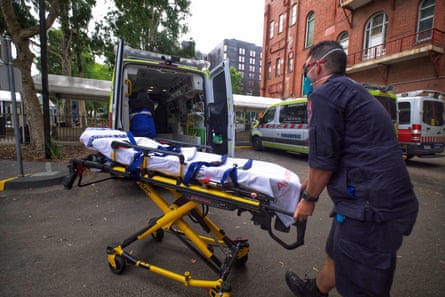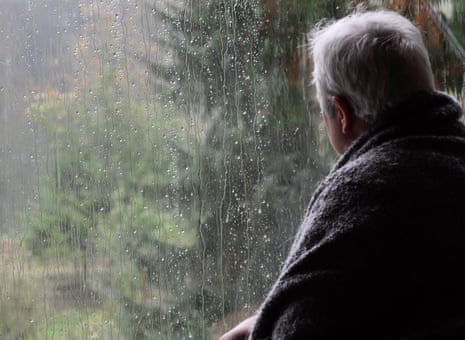Registered nurse Alison* has spent almost $40,000 throughout her 20-year career in aged care learning how to work compassionately with elderly people and, in particular, those with dementia.
Despite more than two-thirds of those in residential aged care living with moderate to severe cognitive impairment, including dementia, and the condition being Australia’s biggest killer of women, training in dementia care is not compulsory for aged care staff.
Staff who do want extra training often do it in their own time and at their own expense, though there is also government-sponsored training available.
“Compulsory training to handle dementia patients is basically nonexistent,” Alison says.
“I’ve spent $40,000 between getting a graduate diploma in gerontology and completing my master’s in ageing and health because I love aged care and because I want to be good at what I do, and those courses more comprehensively cover dementia. When I try to inform managers of my training and offer to upskill staff, they are often threatened by the fact I know more than them, rather than encouraging.”
The tragic case of 95-year-old Clare Nowland raises important questions about why a police officer allegedly resorted to Tasering a 95-year-old woman with dementia, who was using a walking frame and wielding a steak knife at the time. Left with serious head injuries after being Tasered on 17 May, Nowland died on Wednesday, and an investigation into the police response is under way.
But those in aged care and geriatrics say the incident also raises critical questions about how aged care staff can deal with people with dementia and when police intervention is needed.
Lack of dementia training is a glaring oversight, the aged care royal commissioners highlighted in their final report handed down in 2021. They wrote: “We are deeply concerned that so many aged care providers do not seem to have the skills and capacity required to care adequately for people living with dementia … dementia care should be core business for aged care services.”
The commission recommended all aged care workers with direct care responsibilities receive regular training in dementia care, and that aged care providers insist on this training to be considered compliant with Aged Care Quality Standard laws. The government is yet to make this recommendation law under the Aged Care Act.
Instead, a pilot program is under way involving 40 aged care facilities. All workers at those facilities regularly receive training for caring for people living with dementia. The evaluation of this pilot is not due to be complete until the end of September, and the findings will inform a final set of standards to be drafted into a new Aged Care Act.
It means the act, due to be implemented in July, will not come close to meeting the royal commission’s target. In the meantime, residents with dementia are failing to receive best-practice care, findings from the royal commission reveal – a situation that staff who have spoken to Guardian Australia say is not improving.
Alison says the dementia skills of staff, having permanent staff who know the residents, and staff-to-patient ratios are all critical to homes responding to the frequent occurrence of aggression and agitation in residents in a safe, ethical way.
“I frequently deal with people with dementia who are aggressive, some of them more than six foot, some of them violent men,” Alison says.
“Only twice in my career have police been called.”
The calling of police to aged care facilities has been variously described as “rare” by the NSW police commissioner, Karen Webb, and “common” and “standard protocol” by aged care industry staff.
But reliable data is difficult to find.
The Aged Care Quality and Safety commissioner, Janet Anderson, tells Guardian Australia that the commission does not collect data on the involvement of emergency services in serious incidents at aged care homes.
The ACQSC received 37,833 serious incident notifications from residential aged care providers in 2021-22. The unreasonable use of force accounted for nearly two-thirds of these incidents, and 86% of these involved interactions between residents. Providers reported severe cognitive impairment was a factor in 60% of those cases.
The commissioner says while responding appropriately to a cognitively impaired person showing aggression can be “challenging”, preventing or minimising the risk of aggressive behaviour “is obviously the preferred approach”.
“It is vital for those responding to have the knowledge and skills to keep everyone safe as far as possible,” she says, though aged care providers “are expected to involve emergency services when and if an incident requires it”.
But residential aged care staff who spoke with Guardian Australia all say there is little guidance about when an incident should be deemed as “requiring” police.
A registered nurse with two decades experience in public aged care facilities, Sam*, says some procedures for responding to agitated residents have changed since the royal commission.

Until recently, it was common to use physical or chemical restraints – including injections – to subdue agitated or aggressive residents, with staff holding residents down to administer drugs.
Revised legislation for using physical, chemical and other restraints – now described as “restrictive practices – were introduced in July 2021. The least restrictive practices possible must be used, and only as a last resort to prevent harm.
after newsletter promotion
“Obviously it’s good to rely less on restraints,” Sam says. “However, there hasn’t been the subsequent training and up-skilling of staffing to replace the use of those restraints with alternative methods. There are no clear guidelines and training. We’re also working with staff from overseas that have never worked in aged care before, let alone with any dementia experience.”
Sam says all of her skills with dementia patients have been absorbed on the job from other staff, but she is not sure if what she has learned is best-practice, based on evidence.
She is unaware of free dementia training programs on offer through the government, or which programs are credible, and says she wouldn’t have the time for extra training, given she already works extensive overtime.
Sam has never seen police attend an aged care facility. Her current workplace has a policy of calling security to help respond to any highly agitated, aggressive residents.
“We have one frequently agitated resident that we have told management needs a one-on-one carer at all times, but management refuse,” she says.
“By calling security whenever he gets agitated it triggers an incident report which reinforces to management our need for an extra person. But security do not touch the resident, and I am still in charge. I tell security to just create a physical barrier in front of the resident to help try to redirect them.”
Since the Nowland case, staff have been directed that only the nursing manager is allowed to call security. Sam suspects upper management are questioning the skills and training of security staff to respond to distressed residents.
A senior medical specialist in geriatric medicine with more than 30 years of clinical experience, Prof Joe Ibrahim, says people mistakenly believe that because aged care facilities, like hospitals, care for some of the most vulnerable people, there would be stringent national protocols in place for treating residents with dementia.
“But there are no national standards and procedures for dementia care because aged care is a market-based service, where you have essentially 800 different operators running the 2,700 homes across the country,” he says.
“They’re not beholden to anyone except the regulator. And the regulator has standards that can be broadly interpreted.”
Ibrahim says the system will often treat someone suffering from, for example, methamphetamine-induced psychosis in the same way as it treats an elderly person experiencing frightening delusions due to dementia.
“If the ambulance service gets called and the resident does not consent to being touched or going in the ambulance, the paramedics can’t just manhandle the person or they’re up for assault,” Ibrahim said.
“The ambulance service can’t transport people who are violent without police involvement. The standing procedure would be to call the police, who may have protocols about how to deal with an armed threat, such as someone with a weapon.”
While resident and staff safety is paramount, an agitated dementia patient is often terrified. They may be confused, suffering from an illness or from pain they are unable to describe, or historical painful experiences such as child sexual abuse may be triggered, for example, by an aged care staff member undressing them for a shower.

Alison recalls an incident where five aged care staff in the Victorian aged care facility where she works could not manage an 86-year-old woman with dementia covered in faeces, who was refusing to be assisted with showering, and becoming aggressive. One of the staff came to Alison to ask for help to “control” the resident.
“I walked into her room and she was sitting on the bed, terrified. And I just ordered everybody out of the room, sat down on the bed next to her, and acknowledged she was upset.”
Alison knew the lady had been in orphanages as a child and had issues around being inappropriately touched, and asked the lady if there was a carer she would prefer to help her shower. Within 20 minutes, she had showered with the assistance of the chosen carer and was calm again.
“From the perspective of the staff, they had a duty of care not to let her sit in her own faeces,” Alison said.
“But although there was an adequate number of staff, none of them had the training to engage with someone with dementia whose brain just wasn’t functioning correctly. None of them had been working there for long enough to know her history.
“Or to realise that she was really just very, very afraid.”
*Names changes to protect identity
Do you know more? melissa.davey@theguardian.com
